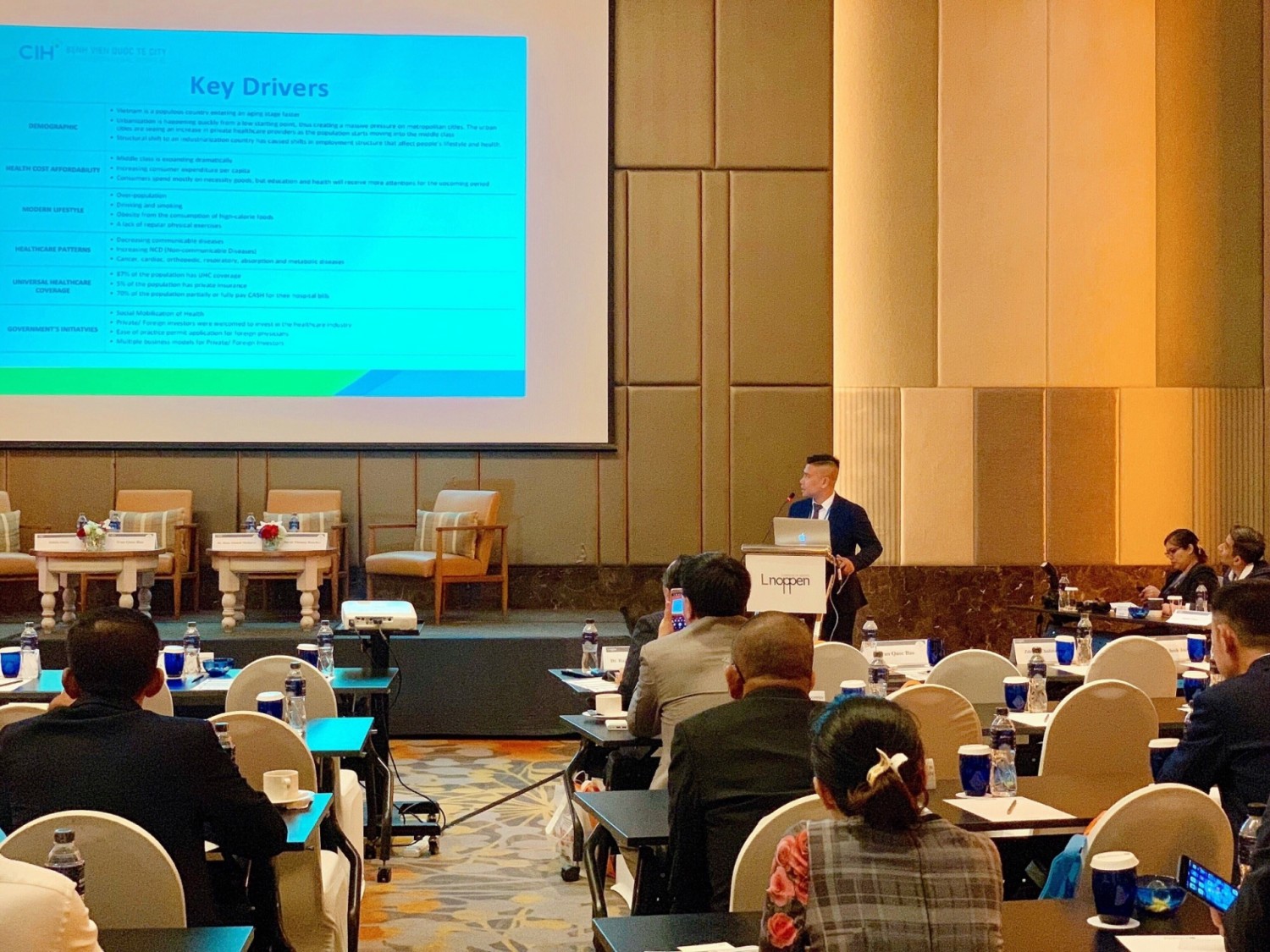Vietnam is emerging as the next medical tourism hub of Southeast Asia thanks to the fast-paced development of the healthcare and wellness sectors.

As Vietnam is striving to become a prospective market for health tourism, captivating increasing inflows of foreign investment, national delegates from across Southeast Asia have been invited to the leading quadrennial Southeast Asia Hospital Expansion Summit, held in February 2019 in Bangkok, Thailand.
Tran Quoc Bao, Planning and Marketing Director of City International Hospital, Ho Chi Minh City, Vietnam, featured as one of the keynote speakers and panelists of the event. According to Bao, Vietnam is a fast-growing country and a preferred hub for healthcare and wellness services. The Vietnamese medical sector grows by 18-20 percent every year. The number of foreigners traveling to Vietnam for medical examinations and treatments is over 80,000. The income is reaching over $1 billion.
“There is a big potential in Vietnam’s healthcare, especially in medical tourism,” he said. “Vietnam is located in the center of Southeast Asia, which makes it convenient to reach from Southeast Asian countries. Plus, Vietnam has the advantage of political stability. This makes Vietnam a safe and secure traveling destination for foreign tourists. Vietnamese healthcare providers offer relatively good quality medical care and the cost is also very affordable, compared to neighboring countries.”
On the other hand, he also pointed out the current challenges that need to be addressed to improve the situation of medical tourism in Vietnam. Challenges come from the lack of awareness from regional foreign patients and the low number of internationally-accredited hospitals in Vietnam.
He suggested initial solutions in both the national and regional scales. A country-wide campaign needs to be established, targeting foreign tourists and medical tourism guests traveling to Vietnam. By taking advantage of digital innovation and social media, Vietnam can reach out to foreign tourists and medical tourism guests in the region, who lack information on healthcare in the country.
Moreover, sending Vietnamese representatives to join networking events with affiliations and associations in Southeast Asia would also help expand awareness of healthcare and medical tourism in Vietnam. It is important to have Vietnamese international hospitals earn international accreditation, by organizations such as the Joint Commission International (JCI), to build trust among tourists and medical travelers in the region.
Last but not least, it would be important to build a system of regional co-patient management, in order to best utilize the benefits of cross-border hospital transfers for patients going from one country to another for treatment.
Around 8.4 million medical tourists traveled abroad to seek healthcare services in Thailand, Malaysia, and Singapore, as well as emerging hubs like Indonesia and Vietnam, which is nearly a third of the global medical consumers. The medical tourism market is increasingly viewed as an important and lucrative sector amongst the ASEAN Six, including Singapore, Thailand, Malaysia, Vietnam, Indonesia, and the Philippines.
The Southeast Asia Hospital Expansion Summit is a unique platform for Southeast Asia’s financers to invest in the healthcare industry through smart hospitals, digitalization, operational efficiency, clinical excellence, patient-centricity and technological advances in order to address its promise in providing accessible, affordable and quality healthcare services.
[content_block id=4039 slug=posts-footer]





